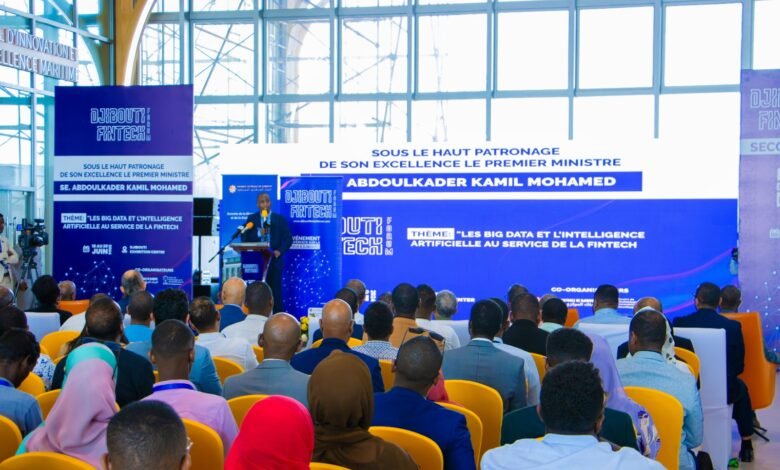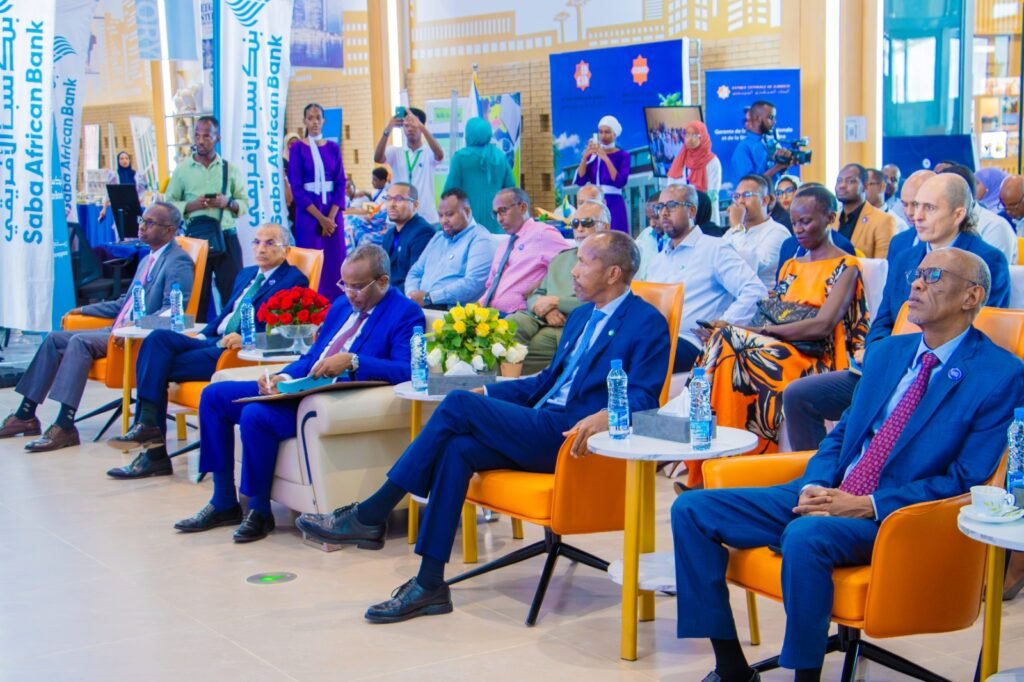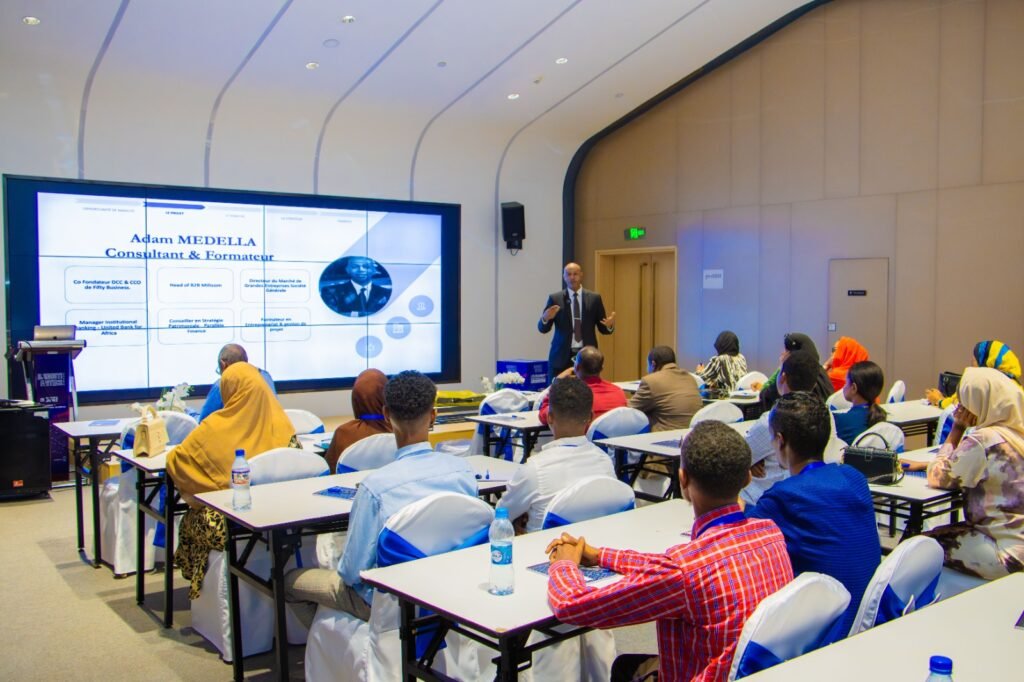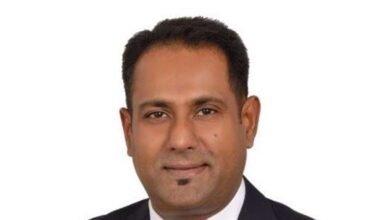Djibouti Fintech Forum : Djibouti on track to become an African financial hub
As Djibouti, the world's most connected country with over a dozen submarine cables, a regional port and logistics hub, aspires to position itself as a financial hub, fintech emerges with an ecosystem yet to be structured. This is the goal of the Djibouti Fintech Forum, which held its second edition from June 18th to 20th: to bring together ecosystem actors to fill gaps and accelerate the process. A more ambitious and practical edition...

The Djibouti Fintech Forum held its second edition from June 18th to 20th, 2024, marking a crucial step in the country’s technological and financial development. This event, organized by the Center for Technology and Innovation for Development (CTID) in partnership with the Central Bank of Djibouti, aimed to structure an emerging fintech ecosystem and accelerate Djibouti’s digital transformation.

« The Djibouti Fintech Forum 2024 is a crucial event for Djibouti’s technological and financial future, » said Samatar Abdi Osman, Commissioner General of the Djibouti Fintech Forum and founder of CTID. « This forum is a unique opportunity to exchange ideas and innovations, strengthening our position as a regional pioneer in the fintech sector. » During this edition, discussions highlighted the potential of big data and generative artificial intelligence (AI) to revolutionize financial services in Africa.
AI and big data promise to enhance operational efficiency and broaden access to financial services, thus creating unprecedented financial inclusion for all citizens of Djibouti
The second edition of the forum, under the patronage of Prime Minister Abdoulkader Kamil Mohamed, featured several key moments, including the presentation of Djibouti’s first Fintech map, an essential tool for structuring and developing this ecosystem. Five high-level panels discussed ambitious topics such as Islamic financial education, fraud detection through AI, financial risk analysis techniques with AI and Big Data. Finally, two workshops were organized, one on cybersecurity and the other on fundraising.

« AI and big data represent powerful transformation catalysts, » said Minister of Communication Radwan Abdillahi Bahdon. « They promise to enhance operational efficiency and broaden access to financial services, thus creating unprecedented financial inclusion for all citizens of Djibouti. »
The Fintechs offer new solutions to improve access to financial services, promote economic inclusion, and strengthen the resilience of our economy in the face of global challenges
Governor of the Central Bank of Djibouti, Ahmed Osman Ali, emphasized the importance of fintech for the country’s economic future.
« Fintechs play a crucial role in transforming our financial sector, » he said. « They offer new solutions to improve access to financial services, promote economic inclusion, and strengthen our economy’s resilience to global challenges. » This reinforces Djibouti’s ambitions to position itself as a regional financial hub.
In this regard, the country has no shortage of strengths, as emphasized by the many government representatives and public institutions present at the meeting. Among them, Ilyas Moussa Dawaleh, Minister of Economy and Finance, assured, « We have all the ingredients to transform these sectors with all their potential. » Starting with exemplary monetary stability since the creation of its currency in 1949, making it a trusted destination for investors. Moreover, the country boasts the largest telecommunications infrastructure in Africa, with exceptional connectivity thanks to over a dozen submarine cables. This state-of-the-art infrastructure facilitates financial transactions and the development of innovative financial technologies. Furthermore, Djibouti is strategically located at the crossroads of maritime and trade routes, reinforcing its role as a regional port and logistics hub. With a rapidly expanding financial sector, including Islamic finance, also thriving in the country.
The forum dedicated a day to Islamic finance, which, combined with digital technology, offers a multitude of new opportunities, as highlighted by the Governor of the Central Bank. By combining the ethical principles of Islamic finance with technological innovations, Islamic fintech offers inclusive, transparent financial solutions that comply with Islamic values. This fusion enables the development of a diversified range of financial products, ranging from mobile banking services to crowdfunding platforms, while respecting the prohibitions of interest and excessive speculation.
Challenges remain to be overcome, continued the Minister of Economy and Finance, notably the monetization of the payment system and the need to create favorable conditions for smooth financial transactions. « It is crucial for the Central Bank to ensure that the pace of its transformation is in line with that of the private sector, » he added.
This is the essence of this forum: to bring together actors in this nascent ecosystem to accelerate the pace of its development. At this level, the Djibouti Fintech Forum demonstrated the importance of innovation and collaboration between the public and private sectors in building a strong fintech ecosystem. « We are at a pivotal moment, » said the Minister of Communication. « The future of fintech in Djibouti depends on our ability to embrace change, adopt new technologies, and encourage entrepreneurship. »
To provide them with a solid foundation, Djibouti’s first fintech map was presented and shared at the forum’s launch.
In summary, the Djibouti Fintech Forum 2024 not only identified current and future growth opportunities for the Djiboutian economy but also strengthened the determination of all stakeholders to make Djibouti a leading financial hub in Africa. « We look forward to assessing progress and continuing this journey together in 2025, » concluded Samatar Abdi Osman.







